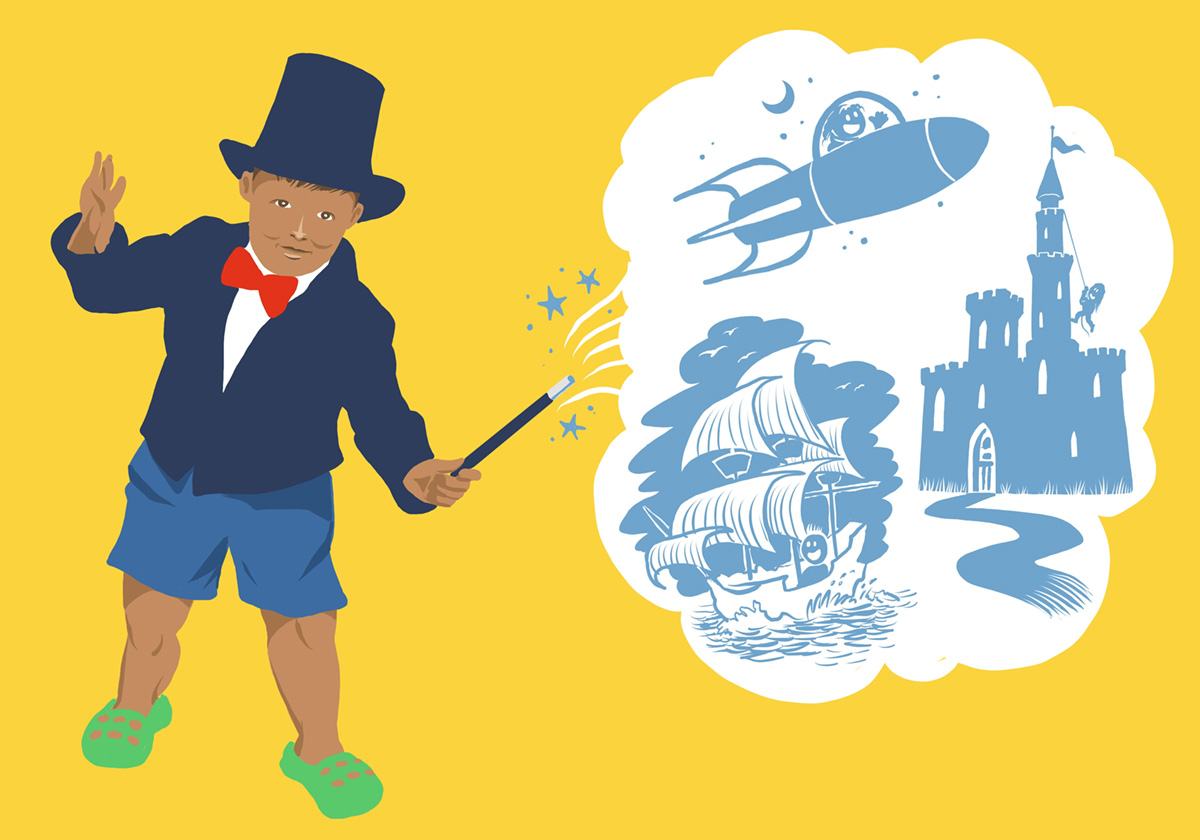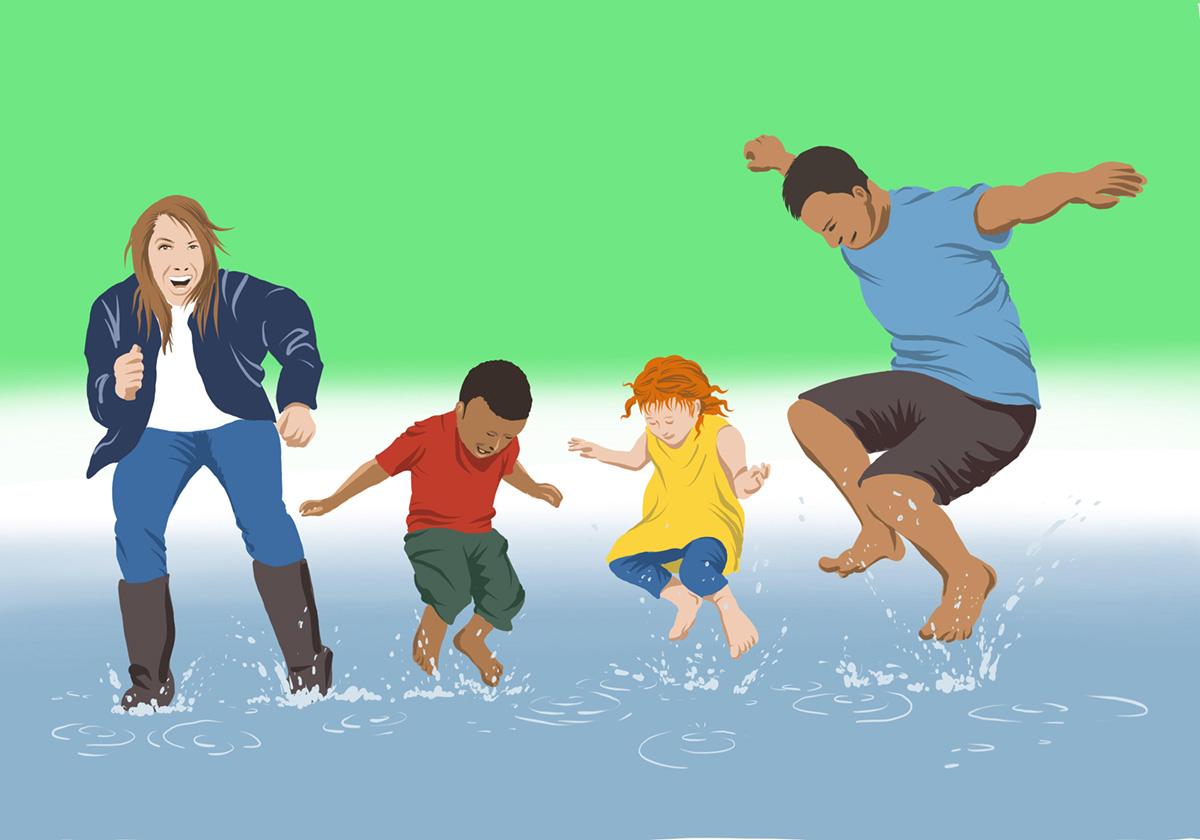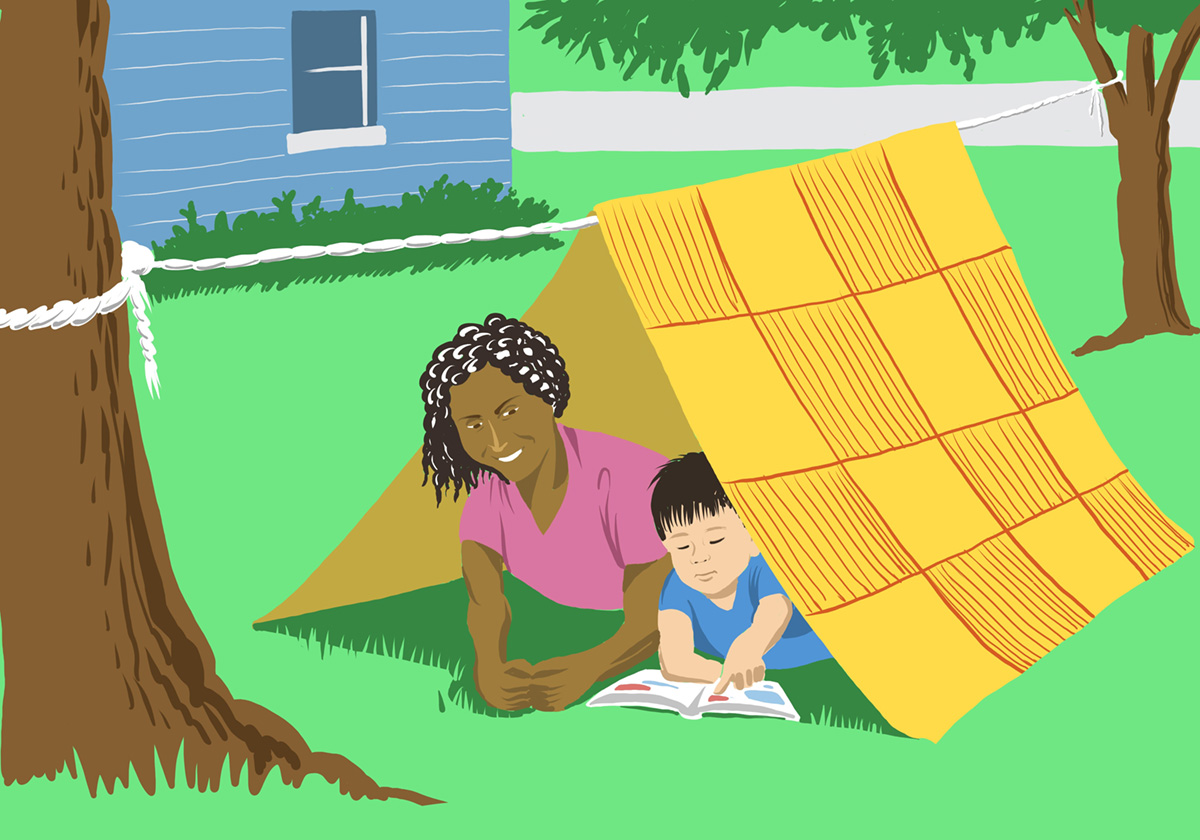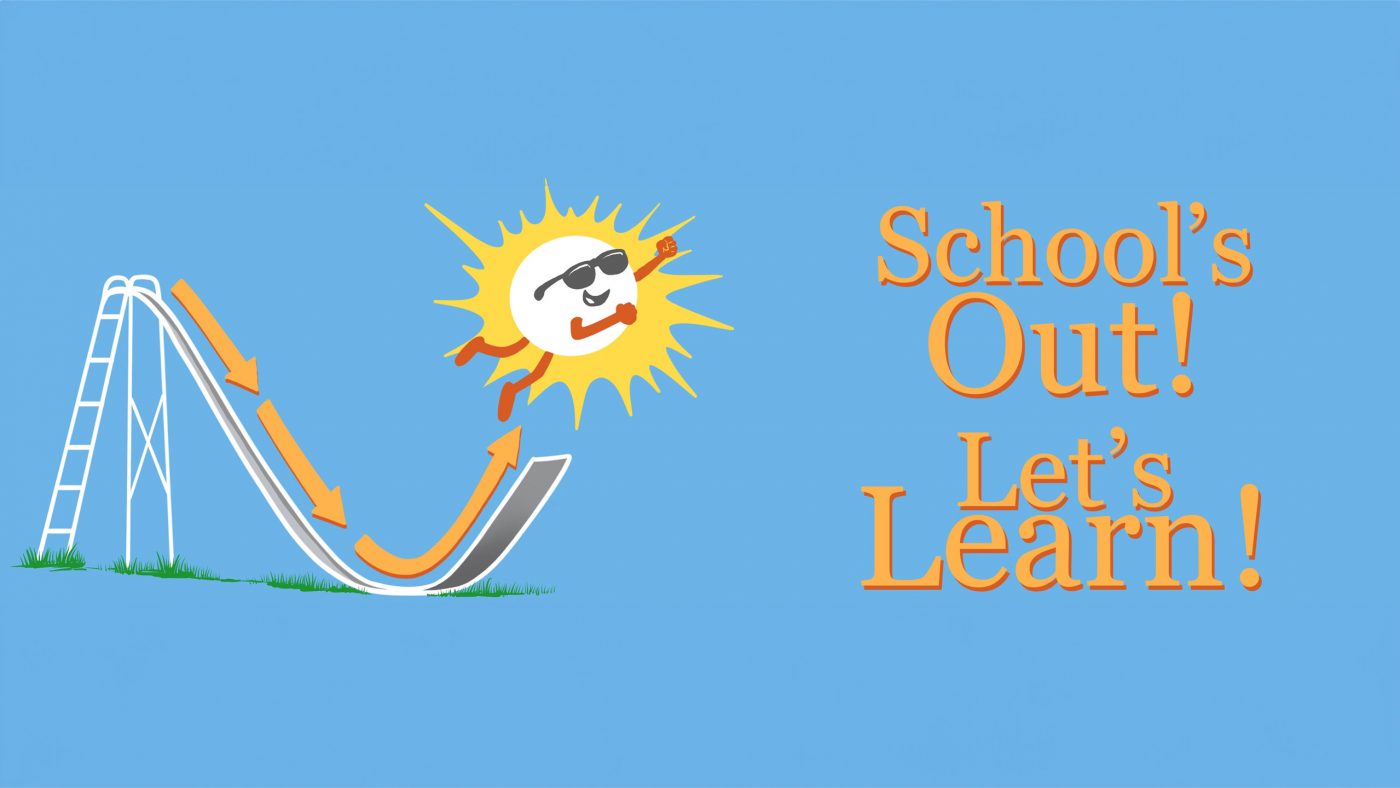First, the good news. As it turns out, the so-called summer slide might not be the threat to our nation’s children that we used to think it was. Children are always learning, no matter the season, but the absence of formal education does put more responsibility on the adults spending time with children in informal settings.
So Early Learning Nation magazine asked leaders and experts, “How can parents and caregivers make this a playful learning summer?” Here are their responses.
“Summer offers a more relaxed time for children to use their imaginations and get creative with whatever materials may be found around the home or in surrounding outdoor spaces: cushions and cloths, for example, can be used to build forts or to dress up; natural materials found outside, like sticks and pebbles, can be used to construct designs, practice number awareness and one-to-one correspondence. We encourage caregivers to offer these open-ended, no-cost, playful opportunities to children, allowing their imaginations to lead the way in play that bolsters language, mathematical and socio-emotional development!”
—Molly Scott, Ph.D., Associate Director, Active Playful Learning; and Cynthia A. Wiltshire, Ed.D., Assistant Professor of Early Childhood Education, and Director, Wiltshire Lab for Teachers and Children (read “Building Executive Function Skills Through Games”)
“‘The best teacher in the world,’ said Fred Rogers, ‘is the one who loves what he or she does, and just loves it in front of you.’ How can parents and caregivers make this a playful summer? By loving what they love—whether it’s painting or playing the guitar—and bringing their kids along for the fun.”
—Gregg Behr, Co-author, When You Wonder, You’re Learning: Mister Rogers’ Enduring Lessons for Raising Creative, Curious, Caring Kids (read our review)
“My view right now is that we have to start working on adults. Find one thing today that’s playful and see how it makes you feel. Skip to the next place you’re going. What would it be like if you took one minute to notice what’s on the sidewalk rather than walking so fast that you don’t even notice it?”
—Kathy Hirsh-Pasek, Professor of Psychology, Senior Fellow at the Brookings Institution, and coauthor, Making Schools Work (read our 7 Top Takeaways her talk on “Reimagining Education”)
 “Turn off the phones, the screens and the noise from the world. And dive into the world of imagination and play with your child! Who knows, you may end up taking a ride into outer space in a rocket ship made out of cardboard, or turn into a dragon breathing fire on a castle. Your child and you will learn alongside each other, not just about the world but about each other, and what a beautiful moment that will be!”
“Turn off the phones, the screens and the noise from the world. And dive into the world of imagination and play with your child! Who knows, you may end up taking a ride into outer space in a rocket ship made out of cardboard, or turn into a dragon breathing fire on a castle. Your child and you will learn alongside each other, not just about the world but about each other, and what a beautiful moment that will be!”
—Binal Patel, Chief Program Officer, Neighborhood Villages (read “The U.N.’s International Day of Play vs. ‘An Inhuman World’”)
“Take some time to observe and ask children what they find enjoyable, while also thinking about what you find enjoyable. What can bring joy to the whole family, as children find joy in experiencing things with loved ones? Opportunities where children get to have agency and direct the activities, whether it is picking the song to sing or dance to master, book themes to read, place(s) to visit, which hill to climb and so much more would spark fun and joy. Finally, finding time for rest and being silly makes for a joyful summer.”
—Iheoma U. Iruka, Gillings School of Global Public Health (Read our review of Child Care Justice)
“We encourage families and caregivers to gather a collection of loose parts to create, tell stories, problem-solve and innovate. Tap into the interests and imagination of a child. For example, a simple paper towel roll can become a telescope for a fun game of Eye Spy; and then become a rocket ship where stories are told about travels in outer space; or a tunnel for a marble run they have created. The possibilities are endless!”
—Nadia Kenisha Bynoe and Angelique Thompson, Authors, The Gift of Playful Learning (read “The U.N.’s International Day of Play vs. ‘An Inhuman World’”)
👉How to Turn ‘Summer Slide’ into Learning Opportunities for Children (Washington Post)
 “This summer, embrace outdoor play and nature as a vehicle for learning, whether that’s a trip to a local playground, a box of sidewalk chalk or a playful walk in the sunshine. Parents and caregivers can also raise their voices and advocate for equitable play spaces in their community so every kid can get the benefits of playful learning.”
“This summer, embrace outdoor play and nature as a vehicle for learning, whether that’s a trip to a local playground, a box of sidewalk chalk or a playful walk in the sunshine. Parents and caregivers can also raise their voices and advocate for equitable play spaces in their community so every kid can get the benefits of playful learning.”
—Lysa Ratliff, CEO, KABOOM! (read “Building Equity by Building Playgrounds”)
“Embrace every day by bringing your children outside to play. Invite your neighbors to play. Step back and let the children take the lead; only assist with access to balls, books, dress-up clothes, sidewalk chalk, water, etc. and watch the magic of play.
—Pat Rumbaugh, Founder, Let’s Play America
“Parents and caregivers should find ways for themselves to play, both with their children, but also on their own. Play begets play.”
—Peter Wardrip, Assistant Professor of STEAM Education, University of Wisconsin (register for the 2024 Play Make Learn conference and read about last year’s conference)
“Play is an evolutionary strategy that strengthens our capacity to simultaneously experience joy, uncertainty and connection. Listen to the laughter around you: Set down your phone and play!”
—Matt Karlsen, Center for Playful Inquiry (read “Inspiring Educators with No Borders between Play and Learning”)
 “Play is a joyful constant in children’s lives. It is how they connect, grow and learn. This summer, embrace all these possibilities by giving children the time and space to play freely alone and with others, including you. Parents are important and valued play partners so play with children by following their lead when they jump in puddles and join their imaginary scenarios as they transform into pirates searching for buried treasure. But also invite them into playful activities that allow them to experiment and learn things like how to make paper airplanes that can fly long distances, building bridges that connect two pieces of furniture or building a fort big enough to snuggle in and read books together.”
“Play is a joyful constant in children’s lives. It is how they connect, grow and learn. This summer, embrace all these possibilities by giving children the time and space to play freely alone and with others, including you. Parents are important and valued play partners so play with children by following their lead when they jump in puddles and join their imaginary scenarios as they transform into pirates searching for buried treasure. But also invite them into playful activities that allow them to experiment and learn things like how to make paper airplanes that can fly long distances, building bridges that connect two pieces of furniture or building a fort big enough to snuggle in and read books together.”
—Angela Pyle, Ph.D., Director, Play Learning Lab, University of Toronto





